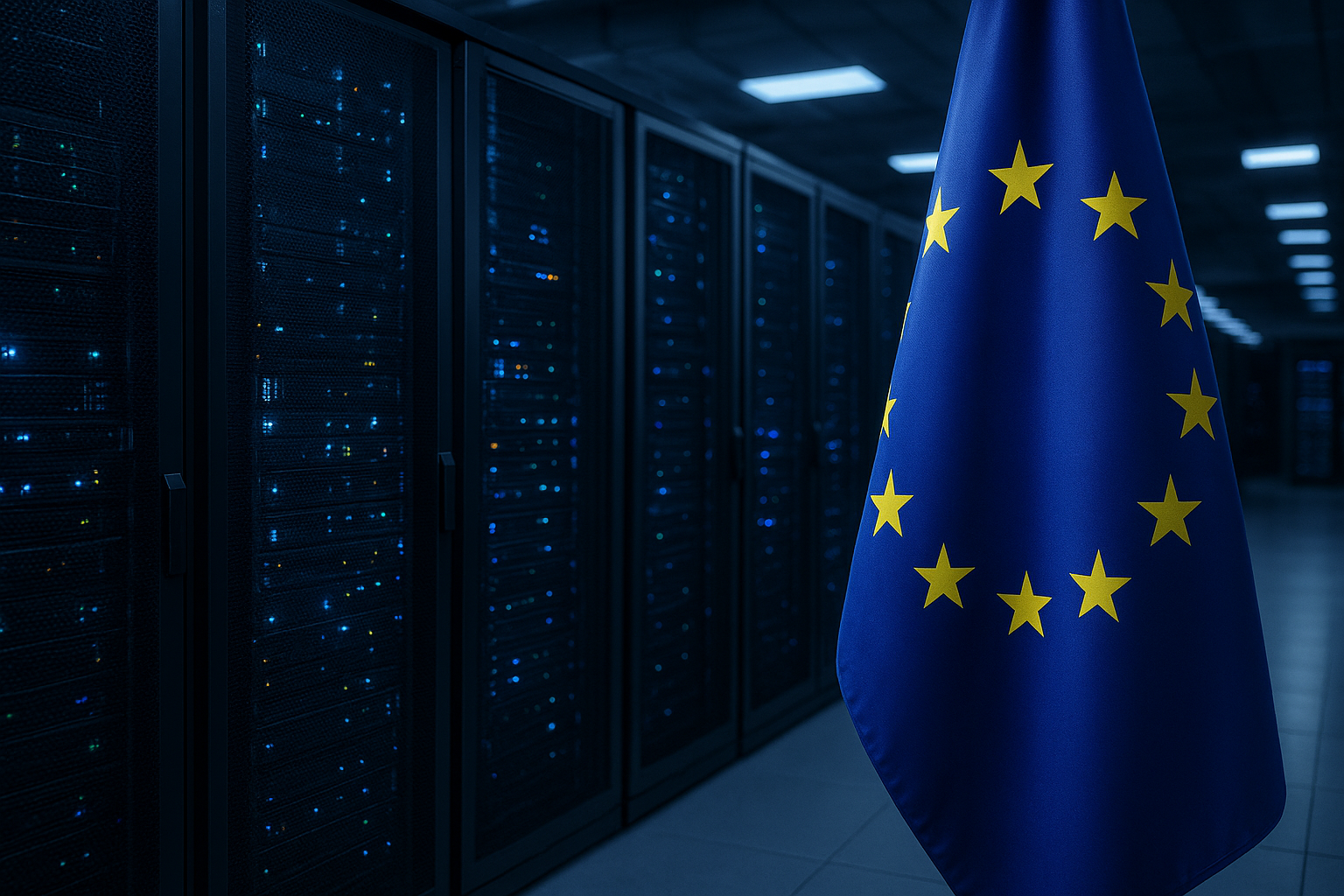Europe’s AI ambitions are shifting gears. Amid escalating geopolitical tech rivalries and rising data-privacy concerns, a new report from Accenture reveals a decisive trend among European enterprises — a move toward “AI sovereignty.” Companies across the continent are prioritising control over their own data and infrastructure, marking a significant pivot away from dependency on U.S. and Chinese AI platforms.
For investors, this emerging theme is not just about regulation — it’s about where capital is flowing next in the artificial intelligence value chain.
Europe’s Sovereign AI Momentum Gains Speed
Accenture’s European AI Readiness Report 2025 highlights a clear strategic pivot: more than 65% of European organisations surveyed now prioritise AI development using locally hosted data and regional infrastructure. This reflects Europe’s growing push to align innovation with its regulatory frameworks, especially under the EU AI Act, which is set to take effect in 2026.
The concept of “sovereign AI” — ensuring AI systems are developed and deployed within local legal, ethical, and infrastructural boundaries — has become a cornerstone of Europe’s digital agenda. Governments in France, Germany, and the Nordics have each announced multi-billion-euro initiatives to support national AI infrastructure, including state-backed data centres and semiconductor partnerships.
“AI sovereignty is fast becoming the next stage of Europe’s digital transformation,” said Jean-Marc Ollagnier, CEO of Accenture Europe. “Enterprises are rethinking their dependency on hyperscalers and focusing instead on sustainable, transparent AI ecosystems.”
Why This Matters for Investors
The implications of this shift are profound. Over the past decade, much of Europe’s digital growth was driven by U.S. hyperscalers such as Amazon Web Services, Microsoft Azure, and Google Cloud, as well as Chinese firms like Alibaba Cloud. But regulatory friction and security concerns have prompted both governments and corporations to diversify their dependencies.
This means capital is now flowing into new AI infrastructure layers — particularly data-centre build-outs, edge computing systems, specialised chips, and sovereign cloud services.
According to Bloomberg Intelligence, European spending on AI infrastructure is expected to reach €48 billion by 2027, a near-doubling from current levels. The European Commission’s “Digital Europe” programme is also allocating over €2.5 billion to enhance AI and data sovereignty initiatives.
For investors, the takeaway is clear: the AI boom is no longer confined to algorithms and applications. The new frontier is the foundation — compute power, energy-efficient chips, and trusted data ecosystems.
Strategic Sectors to Watch
1. Regional Cloud Providers:
Firms such as OVHcloud (France) and Deutsche Telekom’s T-Systems are emerging as credible alternatives to U.S. hyperscalers, offering sovereign cloud solutions certified under EU data-protection rules.
2. Data-Centre Infrastructure:
Europe’s data-centre capacity is forecast to grow 30% by 2026, driven by sovereign AI demand. Companies specialising in sustainable data-centre operations and cooling technologies stand to benefit.
3. Semiconductor and Hardware Supply Chains:
With the European Chips Act mobilising €43 billion in public and private investment, semiconductor producers like STMicroelectronics, Infineon, and emerging fab-as-a-service firms could see renewed momentum.
4. Energy and Connectivity:
AI sovereignty requires robust, efficient power and broadband backbones. Utilities and energy-infrastructure firms — especially those tied to renewables and smart grids — are poised to play a critical enabling role.
Future Trends to Watch
Beyond infrastructure, Europe’s AI sovereignty drive intersects with several macro themes:
- Decarbonisation: AI’s massive compute requirements are pushing governments to pair digital expansion with green-energy commitments.
- Cybersecurity: Demand for locally managed AI systems strengthens the case for European cybersecurity providers.
- Cross-Border Alliances: Expect to see joint AI research zones between EU members, mirroring recent Franco-German AI innovation hubs.
- Investor Regulation: Funds with exposure to non-compliant or foreign-dependent AI systems could face new reporting or ESG constraints.
As Reuters recently noted, institutional investors are increasingly factoring data-sovereignty risk into valuations, particularly in sectors tied to cloud and digital services.
Key Investment Insight
Europe’s AI sovereignty movement represents a structural shift in how value is distributed across the AI ecosystem. Instead of chasing high-growth applications, investors may find stronger risk-adjusted opportunities in infrastructure, chips, and middleware — the backbone of sovereign AI.
Companies that enable localised, transparent, and compliant AI deployment stand to benefit as governments and enterprises pour capital into trusted systems. Meanwhile, global tech giants that fail to adapt to regional requirements may face operational drag or loss of market share.
As AI transforms into a regulated, resource-intensive, and politically strategic industry, investors should think beyond short-term hype cycles and position around long-duration infrastructure plays.
Stay informed with MoneyNews.Today for daily market intelligence, actionable insights, and in-depth coverage of how emerging global shifts are shaping the future of investing.





